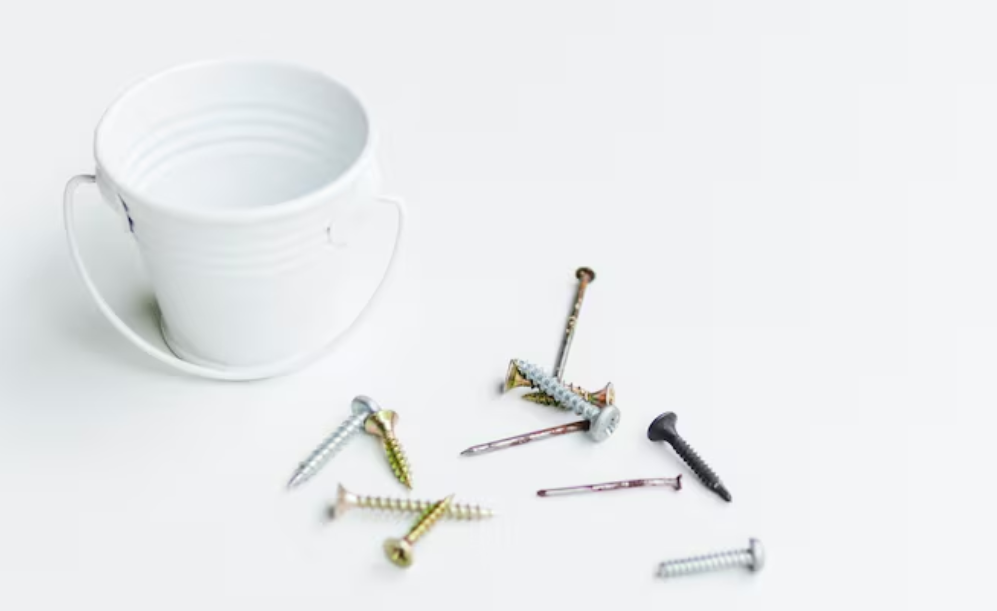
Outdoor construction exposes fasteners to rain, humidity, salt, and temperature changes, all of which can cause metal corrosion. Galvanized screws are specifically engineered to withstand these harsh environments, offering a long-lasting solution that prevents rust and structural failure. This article explains how galvanized screws work, the science behind their protective coating, and why they’re the best choice for outdoor durability.
Introduction: The Challenge of Outdoor Corrosion
Metal corrosion occurs when moisture and oxygen react with iron, forming rust. In outdoor environments, screws are constantly exposed to these elements, accelerating oxidation and weakening the structure. For decks, fences, or exterior frameworks, choosing corrosion-resistant screws is not optional—it’s essential. Galvanization provides a protective barrier that shields steel from rust and prolongs its service life.
What Does “Galvanized” Mean?
Galvanization is the process of coating steel or iron with a layer of zinc. The zinc serves as a sacrificial metal—it corrodes first, protecting the underlying steel. When moisture contacts the screw surface, the zinc reacts to form a thin, insoluble zinc oxide and carbonate layer, effectively sealing out oxygen and water. This process stops rust from forming on the base metal, even when small scratches appear on the coating.
Types of Galvanized Screws
There are several galvanization methods, each offering a different level of protection and finish quality:
• Hot-Dip Galvanized – The screw is dipped in molten zinc, forming a thick, durable coating ideal for extreme outdoor use.
• Electro-Galvanized – Uses an electrical current to deposit a thin zinc layer, producing a smooth, shiny finish for light-duty applications.
• Mechanical Galvanized – Applies zinc powder and frictional heat, resulting in a consistent, medium-thickness coating with strong adhesion.
• Cold Galvanized (Zinc-Rich Paint) – Involves spraying or painting zinc compounds on the surface for minor protection or maintenance touch-ups.
How Galvanized Screws Prevent Rust
The key to rust prevention lies in zinc’s electrochemical properties. Zinc is more reactive than iron, so when both metals are exposed to moisture, zinc oxidizes first. This sacrificial protection stops the steel underneath from rusting. Even if the coating is scratched or chipped, the zinc continues to protect nearby exposed areas by forming a stable, non-corrosive barrier. This phenomenon is called cathodic protection, and it’s the reason galvanized screws last for years outdoors.
Applications of Galvanized Screws
Galvanized screws are widely used in outdoor construction where moisture exposure is constant. Common examples include:
• Decking and wooden patios
• Outdoor furniture assembly
• Roofing and siding panels
• Fence posts and garden structures
• Utility poles and light fixtures
• Metal-to-wood framing and structural joints
In these applications, non-galvanized screws would quickly corrode, compromising strength and safety. Galvanized options ensure long-term performance and lower maintenance costs.
Advantages of Using Galvanized Screws
• Long-lasting protection against rust and corrosion.
• Cost-effective compared to stainless steel alternatives.
• Excellent performance in high-humidity and coastal regions.
• Durable coating that resists abrasion and weathering.
• Compatible with most types of treated lumber and exterior materials.
Because of their protective layer, galvanized screws require less upkeep and maintain their strength even after years of exposure, making them a top choice for outdoor builders and engineers.
Maintenance and Care Tips
• Avoid mixing galvanized screws with stainless or brass metals to prevent galvanic corrosion.
• Do not use strong acids or cleaners that can strip the zinc coating.
• Inspect outdoor structures annually for wear or coating damage.
• Store unused screws in a dry area to prevent premature oxidation.
• Replace heavily corroded fasteners promptly to maintain integrity.
Galvanized vs. Stainless Steel Screws
While stainless steel screws are naturally rust-resistant, they are more expensive and softer than galvanized ones. Galvanized screws, with their zinc coating, offer a balance of strength, affordability, and corrosion resistance. For coastal or marine environments, stainless steel remains superior, but for general outdoor structures, galvanized screws provide reliable protection at a lower cost.
Conclusion
Galvanized screws stand as one of the most practical and effective solutions for preventing rust in outdoor construction. Their zinc coating not only shields against moisture and oxygen but also actively protects the steel beneath through sacrificial reaction. Whether building decks, fences, or garden structures, choosing galvanized screws ensures longevity, safety, and structural stability even under the harshest weather conditions.







